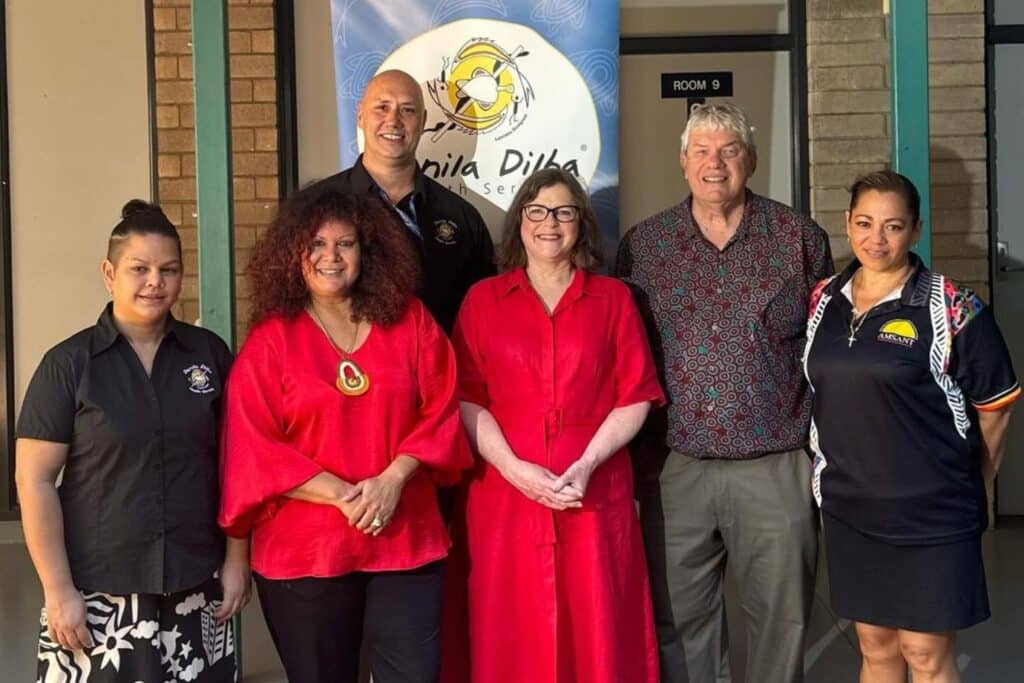Women and girls living in remote First Nations communities will now have access to free period products under a new government initiative.
The Australian government pledged an investment of $12.5 million over the next four years in the 2024-25 federal budget, to improve access to menstrual products for First Nations women and girls who experience higher rates of period poverty.
This investment will go to the National Aboriginal Community Controlled Health Organisation (NACCHO), who will distribute pads, tampons, menstrual cups and period underwear in a culturally-safe, community-led way.
Assistant Minister for Health and Aged Care Ged Kearney MP said the program will significantly help First Nations women and girls living in remote communities, who often have to miss out on school, work or social activities when they are on their period because they do not have access to menstrual products.
“Every woman and girl should be able to access pads or tampons no matter where they live,” Kearney said.
“No one should have to choose between paying for menstrual products instead of food, fuel or rent, and no one should have to miss out on daily activities because they have their period.
“Providing free menstrual products will help First Nations people who are finding it hard to access these essential products.”
The cost of period products in remote parts of Australia can be double of the cost of period products in metropolitan areas. For example, while a packet of pads can be as little as $10 in cities, the same packet can cost up to $25 in these remote communities.
Senator Malarndirri McCarthy, the Assistant Minister for Indigenous Australians and Assistant Minister for Indigenous Health, said the program will ease the financial burden for First Nations women and girls and help them access these vital products.
“We know people in remote communities are doing it tough with the high cost of living, and this program will help ease the pressure and improve access to menstrual products,” Senator McCarthy said.
“Improving access to pads and tampons is important so that women and girls can fully participate in community life – in study, employment and social activities.”
Period poverty in Australia
Every state and territory in Australia provides at least state high schools with period products for students to access at no cost. Victoria was the first state to do so in 2019. Western Australia was the latest state government to provide free period products for students in state primary schools.
These government initiatives address the very real problem of period poverty in Australia, one that disproportionately affects low-income earners and people living in regional and remote communities.
Plan International Australia launched its report A Tough Period in May last year, revealing the significance of period poverty in Australia due to the nation’s cost of living crisis.
According to the research, almost six in 10 (57 per cent) Gen Z and Millennial women find it tougher to pay for period products now than before the cost of living crisis. For Gen Z women alone, this figure sits at 64 per cent.
It’s a similar story for Gen Z and Millennial women affording paid relief medication while they’re on their periods, with more than half (53 per cent) finding it more difficult to pay for medication/treatment than prior to the cost of living crisis.
More than a third (37 per cent) of respondents said affording period products, including pain relief medication and treatment, is impacting their mental health and well-being. This figure sits higher for people outside capital cities (48 per cent), unemployed (45 per cent), those who are renting (46 per cent) and those who have a household income of under $50,000 (47 per cent).
About 16 per cent of Gen Z people who menstruate said their periods and their lack of access to products affected their education or workplace participation.


